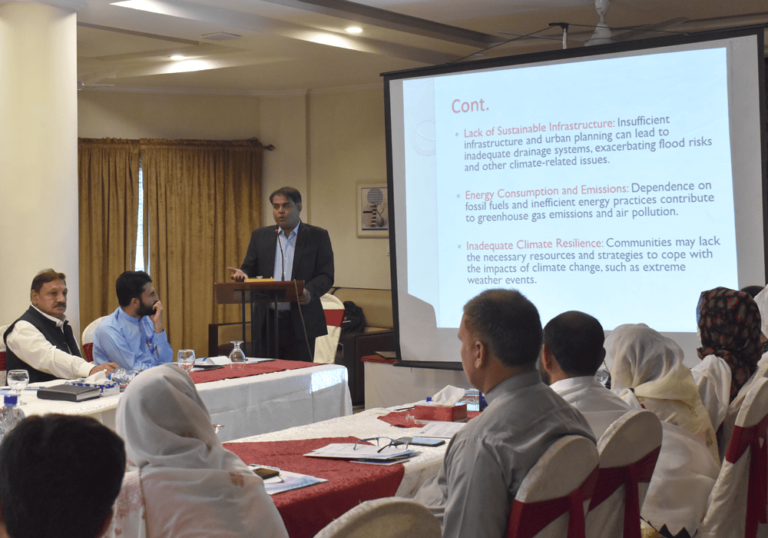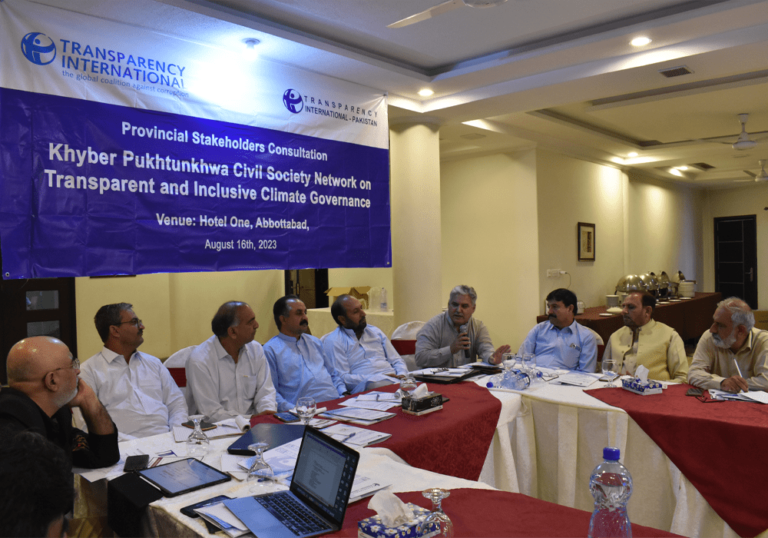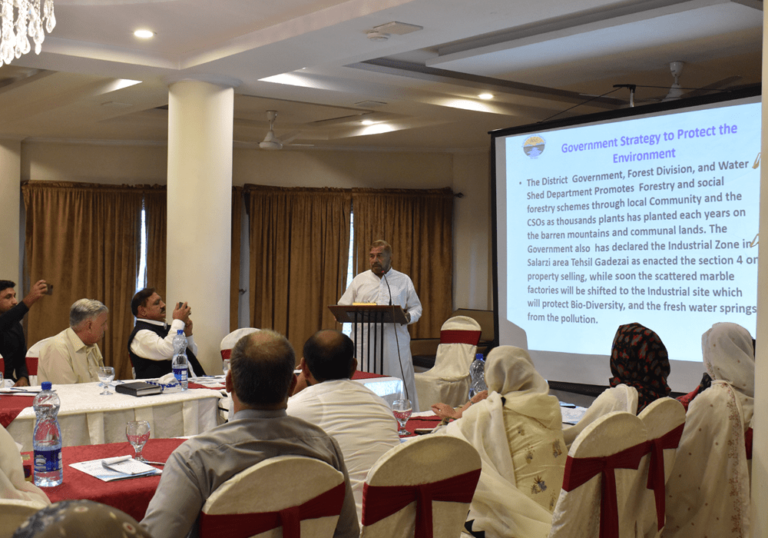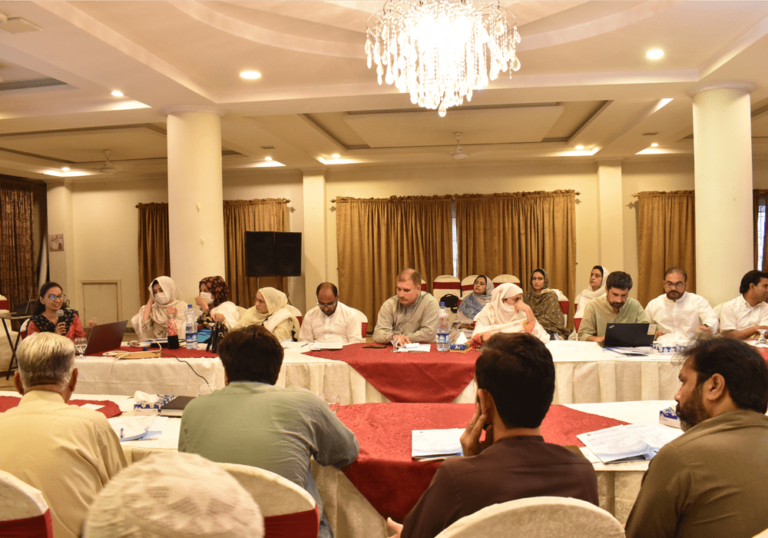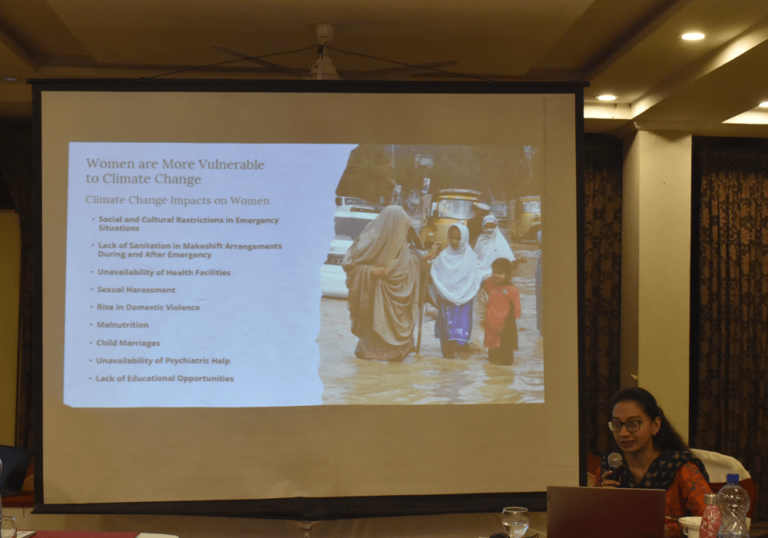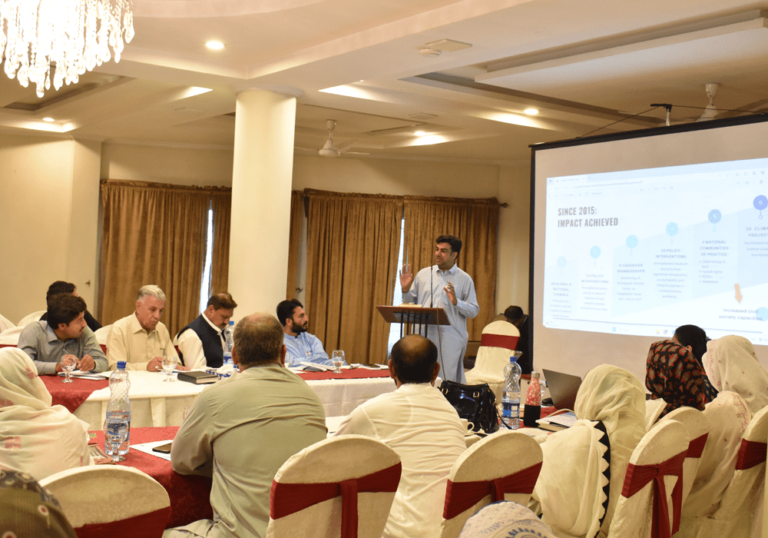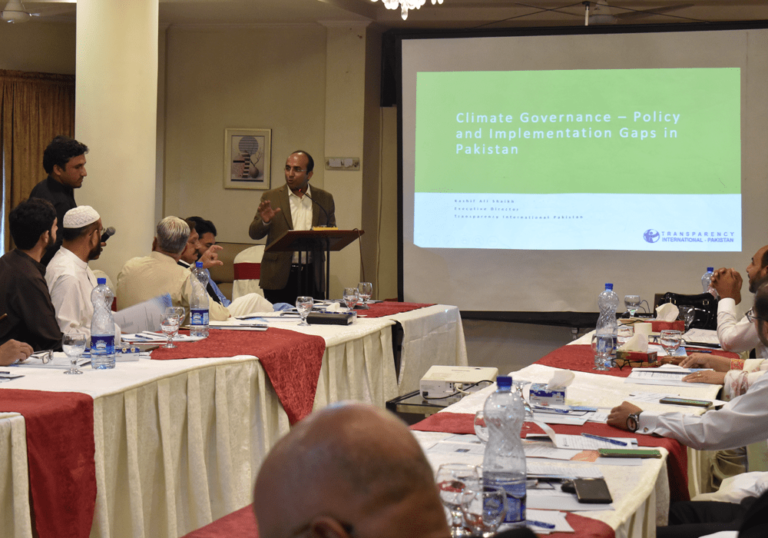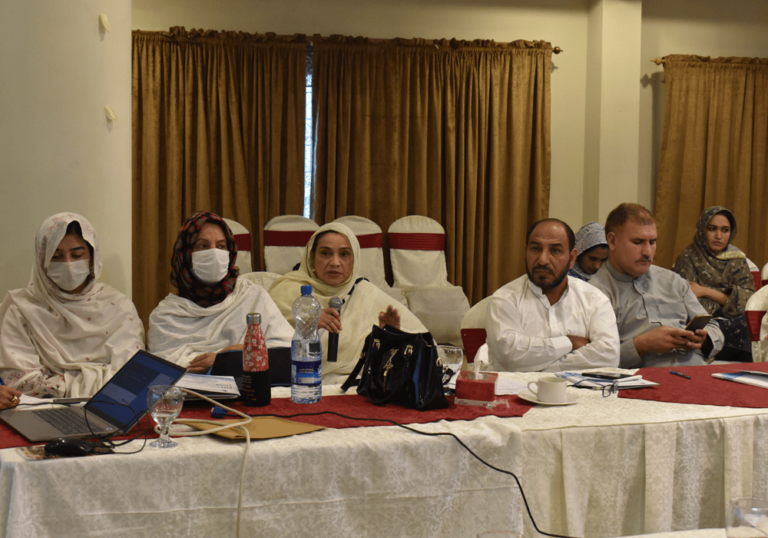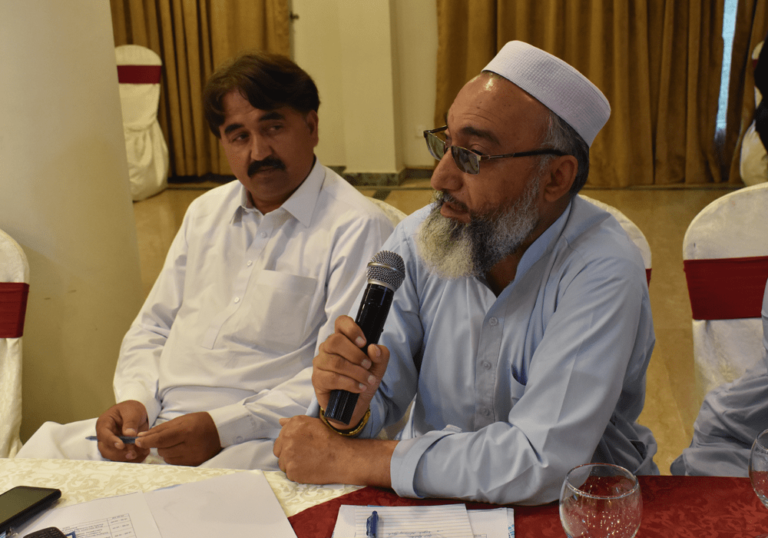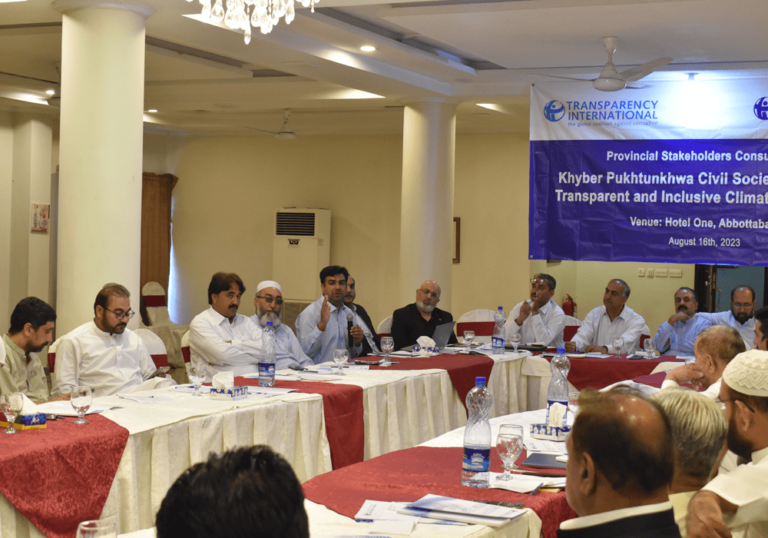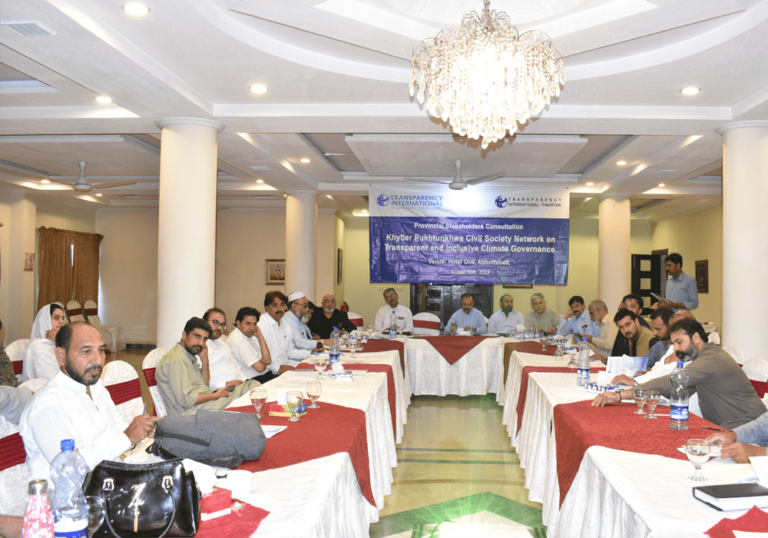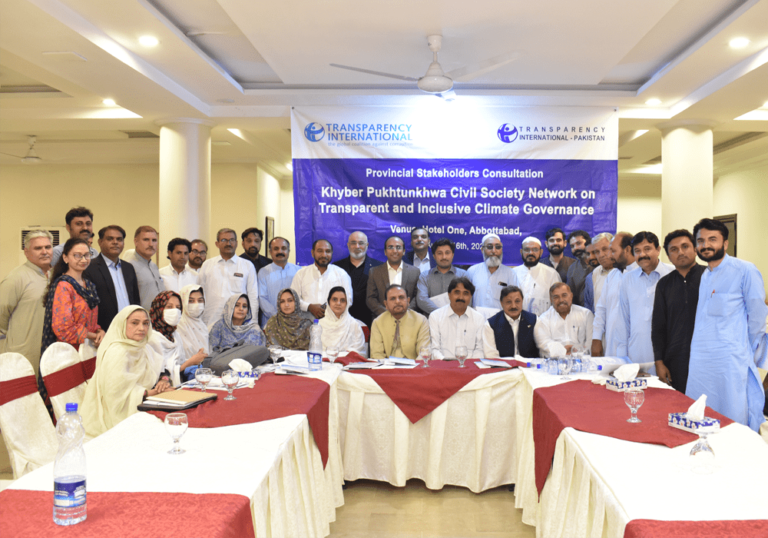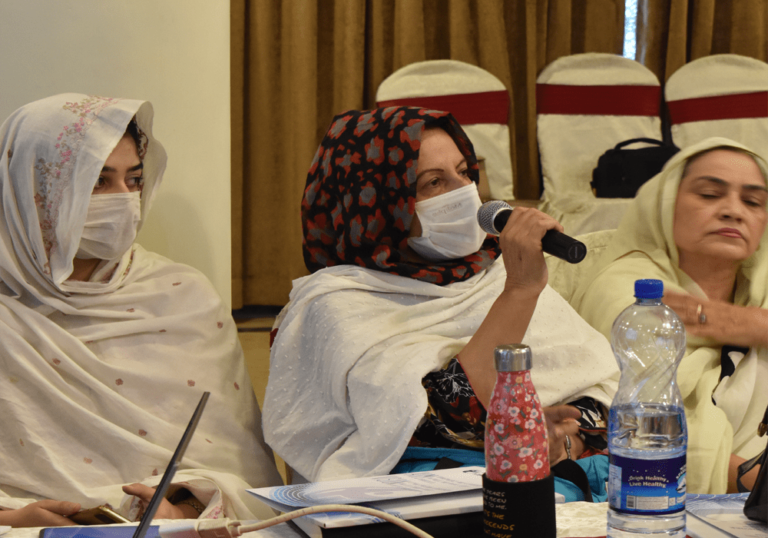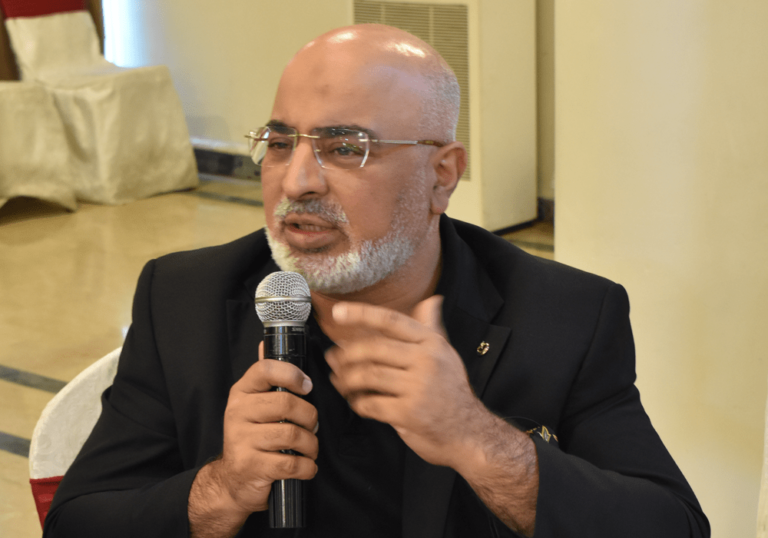- Home
- Event: Inaugural Meeting: Provincial Stakeholders Consultation: Khyber Pakhtunkhwa Civil Society Network on Transparent and Inclusive Governance
Event: Inaugural Meeting: Provincial Stakeholders Consultation: Khyber Pakhtunkhwa Civil Society Network on Transparent and Inclusive Governance
Event: Inaugural Meeting: Provincial Stakeholders Consultation: Khyber Pakhtunkhwa Civil Society Network on Transparent and Inclusive Governance
Venue: Hotel One, Abbottabad, Khyber Pakhtunkhwa
Date: 16 August, 2023
Event Summary: Transparency International Pakistan organized Inaugural Stakeholders’ consultative workshop / meeting and established Khyber Pakhtunkhwa Civil Society Network on Transparent & Inclusive Governance on 16 August, 2023 at Hotel One, Abbottabad, Khyber Pakhtunkhwa. Around 40 participants representing Civil Society Organizations (CSOs) working on climate change related issues from district Abbottabad, Haripur, Battagram, Buner, Charsadda, Dera Ismail Khan, Kohat, Chitral, Lower Dir, Malakand, Mansehra, Mardan, Nowshera, Peshawar, Swabi, Swat, Tank, Torghar and Lakki Marwat attended the consultation meeting.
The event formally began with the recitation of the Holy Quran. A round of introduction was held after which Mr. Toufique Wassan, Project Coordinator Climate Governance and Integrity Programme Pakistan (CGIP) shared the objectives of the consultative meeting.
Mr. Kashif Ali Shaikh, Executive Director, Transparency International Pakistan delivered the opening remarks. He described the organization’s mission and work while highlighting the effects of climate change and the significance of cooperating with marginalized groups such as rural communities, women, young people and civil society organizations through provincial networks.
Mr. Toufique Wassan, Project Coordinator, TI Pakistan briefed the participants on the TORs for Khyber Pakhtunkhwa Civil Society Network on Transparent & Inclusive Climate Governance. He briefed that TI Pakistan would use this network to connect with CSOs operating in various districts of Khyber Pakhtunkhwa and would also reach out to public officials, policy experts, and communities that are marginalized to advocate for inclusive climate policies and transparent climate action through the following:
- Stakeholder engagement at grassroot level to participate in policy making process.
- To report the corrupt practices during emergencies and coordinate with relevant authorities to take notice and action.
- To provide free legal advice to the victims and witnesses of corruption
Mr. Toufique Wassan also gave an overview of Khyber Pakhtunkhwa Climate Change policy 2022. He briefed that the Khyber Pakhtunkhwa Climate Change Policy 2022 is a comprehensive framework aimed at addressing the impacts of climate change in the region. It outlines strategies for mitigation, adaptation, and resilience-building to safeguard the province’s environment, economy, and communities.
He highlighted the challenges to tackle climate change and pointed out the climate governance issues in the province. He said that despite having climate policies and frameworks, the KP government may face challenges in effectively implementing and enforcing these policies on the ground.
Afterwards, the partner organizations briefed about their district’s vulnerability. A participant Mr. Dilrose Khan, from Rose Valley Development Organization (RVDO), Torghar district briefed about the damages caused by floods 2022. He said that in every monsoon season Torghar district face heavy damages including loss of livestock and infrastructure damage, but people are hesitant to relocate and leave their houses because government is unable to provide them suitable alternate.
Another participant Mr. Hakim Zada, from Rural Development Organization (RDO), Buner district briefed about Buner geography and its vulnerability. He said that consuming the fuel wood throughout the year is a major cause of deforestation. He briefed that the only source of drinking water is the natural springs, and 70% population is depended upon it, but due to wildfires in heat temperature, these springs are decreasing. The marble wastes have badly impacted the spring water streams in the surrounding as well.
After a tea break, Ms. Fariha Fatima, Assistant Project Coordinator, TI Pakistan discussed the climate change impacts on gender. She told the participants that how climate disaster is not gender neutral and affect the women more.
She briefed that everyone is impacted by climate change, but not everyone is affected equally. It is well known that climate change worsens already existing disparities and has a bigger impact on the most vulnerable people. Women often face higher risks and greater burdens from the impacts of climate change. She also shared the entry points for gender inclusive response to climate change in Khyber Pakhtunkhwa policy framework.
Next, Mr. Shamsul Hadi from Centre for Peace and Development Initiatives (CPDI) Peshawar gave an overview of Khyber Pakhtunkhwa climate change finance priorities. He said that inadequate funding, human resources, and capacity, lack of efficient local cooperation and overlap in responsibilities, horizontal city expansion and rapid urbanization, unavailability of model building laws or requirements for energy-efficient structures or rainwater collection/harvesting and absence of resources, expertise, and model design for creating adequate landfill sites for safe disposal of waste are the major challenges provincial government is facing.
Afterwards, Mr. Kashif Ali, Executive Director TI Pakistan gave a presentation on Inclusive Decision Making and Integrity Approaches in Climate Finance – Case Study of Khyber Pakhtunkhwa Climate Governance Framework. He gave an overview of Khyber Pakhtunkhwa Climate Change Policy, its key objectives, the governance reforms implemented by provincial government, and implementation challenges.
While discussing the corruption in climate finance, he said that honest and efficient procurement to acquire goods and services is central to enabling climate funds to achieve their goals – but spending entails key corruption risks, including collusion among suppliers or with a contracting entity, inflated prices or diversion of funds. He said that a strong financial framework can ensure climate funding is used for intended purposes, keeping monetary flows fully transparent at every level and preventing bribery, embezzlement and fraud. He said that climate change financing framework provides a roadmap for integrating climate change in the PFM system by identifying entry points based on analysis of legal and institutional processes of existing systems, and enables a systematic response to climate change by linking policy with budgeting, and ensuring transparent allocations and effective use of public resources. He also discussed the gaps and entry points in provincial climate change financing framework. He emphasized that appropriate steps should be taken t prevent corruption in climate finance such as:
- Establishment of Provincial Climate Change Coordination Mechanism
- Establishment of Climate Finance Unit
- Establishment of Climate Change Node in Each Line Department
- Ensuring Accountability and Monitoring
- Comprehensive Whistleblower Protection
Towards the end, a roundtable discussion with the participants from civil society organizations was held to draft set of recommendations to include civil society and community participation in climate policies and enhancing inclusiveness and integrity in Khyber Pakhtunkhwa Climate Governance Framework. TI Pakistan will finalize recommendations and advocate with the provincial and federal government through the platform of CSO network on transparent and inclusive governance.
At the end, Mr. Toufique Wassan, Project Coordinator TI Pakistan gave concluding remarks and appreciated the civil society organizations for joining and sharing their valuable inputs to towards improving provincial climate governance framework in Khyber Pakhtunkhwa. The participants lauded the efforts of Transparency International Pakistan to promote integrity and inclusivity in climate policies, and improve transparent climate governance in the country.


